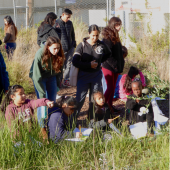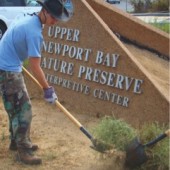
Abstract: Recognizing that most modern students have access to smartphones equipped with multi-media capture capability, this article explores how sustainability education must include digital media literacy in 21st Century learning. Through the lens of a sustainability and media teacher, the article analyzes literature from the fields of digital media literacy, 21st century skills, and sustainability education. The author ties together theoretical and practical methods of how embracing digital media when teaching sustainability can enhance student learning and sharing of sustainability knowledge. With references to emerging trends, critiques, and challenges to media technology adoption in sustainability education settings, the author outlines several techniques to empower teachers and students to incorporate technology they already use daily, and share their work with greater audiences to engage communities beyond the classroom.
Continue Reading
This essay explores the role of critical pedagogy in environmental justice education. We discuss the need for teaching a love of nature (biophilia) as an entry point for developing a caring relationship and sense of stewardship with the natural world. Place-based education and ecopedagogy offer liberatory potential to make education more transformative and focused on the intersections between social and environmental justice. After discussing theoretical approaches of ecopedagogy and indigenous perspectives, we describe a project in which a principal converts the hardscape at two schools into natural habitats and a new teacher engages her students in ecopedagogy.
Continue Reading
Abstract: This theoretical and conceptual article explores the connection between systems design in education, specifically curriculum design, and critical pedagogy, the educational adaptation of critical theory. The author presents the well-established concept of how the industrial standardization of education stems from the imposing of linear structures onto curricular design, inherently suppressing students and communities to have greater control on their educational experience. While there have been great gains in sustainability education, it is self-defeating to the systems thinking nature of sustainability to have sustainability instruction follow traditional linear formats. The author discusses some essential concepts to systems thinking and systems design, and then explores many of the preeminent authors of critical pedagogy and their respective viewpoints. In the discussion, the author interweaves how a systems approach to curriculum design can help meet calls made by critical pedagogy theorists, possibly alleviating some of the oppressive curricular norms assumed by industrialized linear education.
Continue Reading
Abstract: If we are to educate the coming generation about the threats to the environment and the consequences of the excesses of human actions on our planet, educators need to consider critical pedagogy as a means of engaging students in thought and action. This article examines texts from prominent sustainability advocates and researchers, analyzing how they frame sustainability on a spectrum of hope that will then enable educators to address sustainability education with a realistic sense of agency while preparing students to meet the challenges for a sustainable future. Suggestions for pedagogical applications are included for each category across the spectra of hope.
Continue ReadingThe author constructs a theory of sustainable leadership in contrast to exploitive leadership and argues that all leadership in the modern world falls somewhere on a continuum between these two extremes. The definitions developed for sustainable and exploitive leadership hinge upon the purposes toward which leadership is applied. The concept of sustainable leadership is further […]
Continue Reading
In this convincing argument, Tina Evans makes the case for both social and ecological components to sustainability that each of us realize, individually and in community, in the context of our own “lifeway.” She also portrays, in concise terms, the transformational process that she incorporates into her own lifeway as a college professor.
Continue Reading